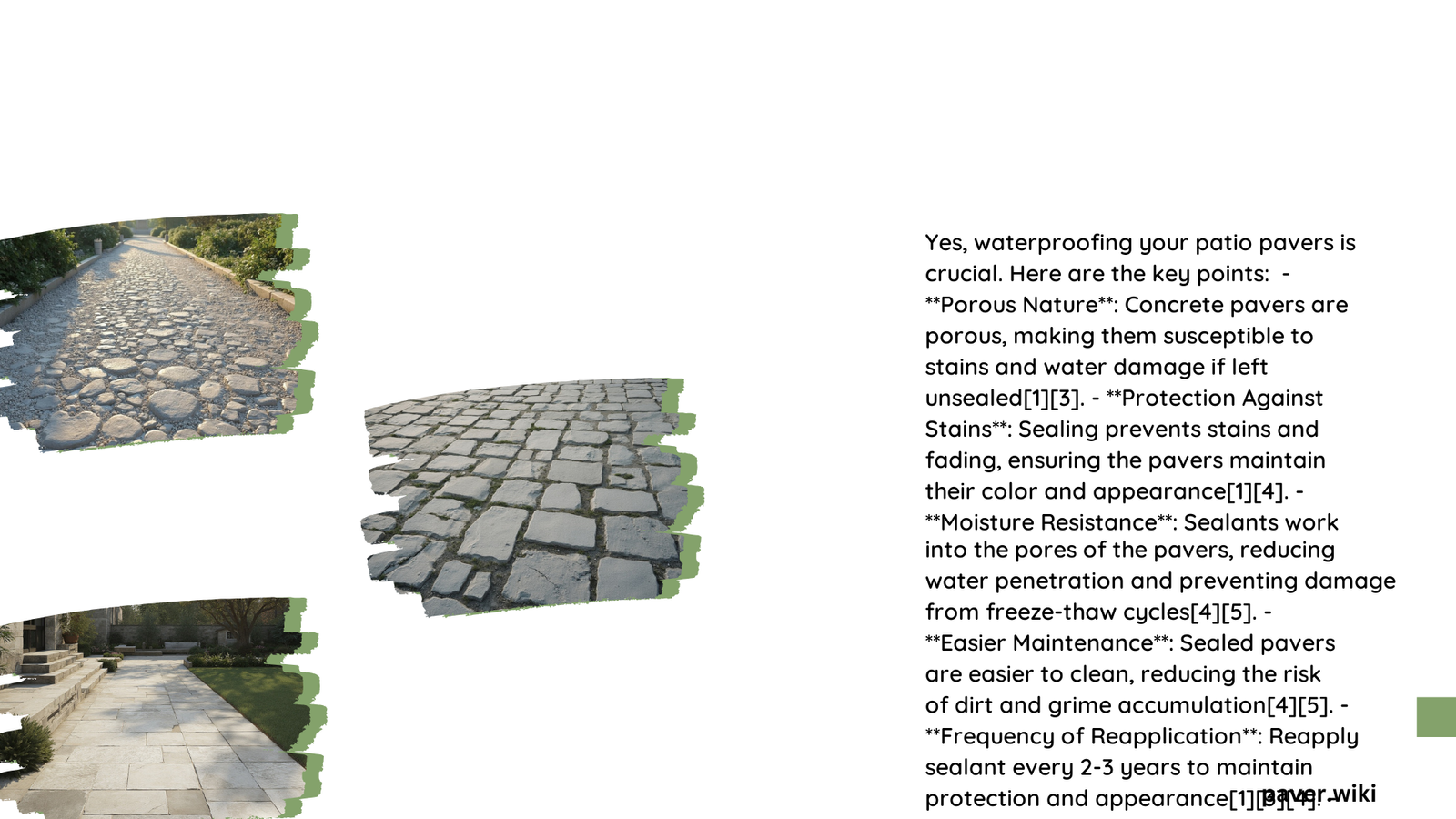Waterproofing patio pavers is a critical decision for homeowners seeking to protect their outdoor investments. Understanding the nuanced benefits and potential drawbacks of sealing can help you make an informed choice about preserving your patio’s aesthetic appeal, durability, and long-term performance. This comprehensive guide will explore the critical considerations that determine whether waterproofing is the right strategy for your specific paver installation.
What Makes Waterproofing Patio Pavers Essential?
Why Protect Your Paver Investment?
Patio pavers represent a significant financial and aesthetic investment in your outdoor living space. Waterproofing offers multiple protective advantages:
- Moisture Resistance: Prevents water penetration and potential structural damage
- Stain Protection: Reduces absorption of oils, dirt, and organic materials
- Color Preservation: Maintains original paver appearance and prevents fading
How Effective Is Waterproofing?
| Benefit | Effectiveness | Typical Duration |
|---|---|---|
| Stain Resistance | 85-90% | 2-3 years |
| Moisture Protection | 75-80% | 3-4 years |
| Color Retention | 70-75% | 4-5 years |
What Factors Influence Waterproofing Decisions?

Are Your Pavers Suitable for Sealing?
Not all paver materials respond identically to waterproofing treatments. Consider these critical factors:
- Paver Composition
- Concrete pavers: Highly receptive to sealing
- Natural stone: Requires specialized sealants
-
Porcelain pavers: Often pre-treated, minimal additional sealing needed
-
Environmental Conditions
- High moisture regions: Increased waterproofing benefits
- Moderate climates: Selective waterproofing recommended
- Extreme temperature zones: Comprehensive protection necessary
What Are the Potential Risks?
Potential Waterproofing Complications
- Moisture Trapping: Improper sealing can cause internal moisture accumulation
- Efflorescence: Salt deposit formation beneath the surface
- Uneven Application: Inconsistent protection and aesthetic issues
How to Select the Right Waterproofing Approach?
What Sealant Options Exist?
Selecting an appropriate sealant involves understanding different product characteristics:
- Penetrating Sealers
- Absorbs into paver material
- Provides invisible protection
-
Ideal for natural stone surfaces
-
Topical Sealers
- Creates surface film
- Enhances color and shine
- Better for concrete pavers
What Application Techniques Matter?
Professional vs. DIY Waterproofing
- Professional Application
- Guaranteed even coverage
- Advanced equipment usage
-
Comprehensive surface preparation
-
DIY Approach
- Cost-effective
- Requires careful surface cleaning
- Demands precise application techniques
When Should You Avoid Waterproofing?
Are There Scenarios Where Sealing Is Not Recommended?
- Recently installed pavers (wait 6-12 months)
- Pavers with existing moisture damage
- Surfaces with significant structural issues
Maintenance Recommendations
How to Maximize Waterproofing Effectiveness?
- Clean surfaces thoroughly before application
- Choose season with moderate temperatures
- Apply multiple thin coats
- Reapply sealant every 2-3 years
Final Recommendations
Waterproofing patio pavers is not a universal solution but a strategic decision. Assess your specific environmental conditions, paver material, and maintenance capabilities to determine the most appropriate approach.
Consultation Advice
- Consult local landscaping professionals
- Obtain multiple product recommendations
- Consider your specific climate and usage patterns
References:
– Paver Maintenance Guide
– Sealant Technology Insights
– Outdoor Surface Protection
